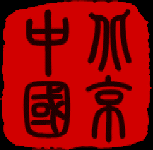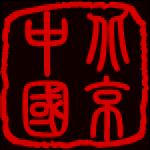Money
Cash
The Chinese currency is the RenMinBi (RMB), or 'the people's money'. The basic unit, the 'yuan', is divided into 10 'jiao' (1 yuan = 10 jiao). The jiao is not often used these days. In spoken Chinese, the yuan is referred to as the 'kuai' and the jiao is referred to as the 'mao'. Prices are always marked in yuan.
The following yuan notes are issued : 100, 50, 10, 5, 2 and 1. Coins are not much used but there is a 1 yuan coin and some smaller ones for jiao. The jiao notes are smaller. It is a good idea to keep a stock of smaller denomination yuan notes (1 - 10) for taxis and other small payments.
Traveller's Checks and Foreign Currency
These can be changed at international airports, main branches of the Bank of China and major hotels. Hotels may only exchange money for their guests. Traveller's Checks generally receive a more favorable rate than cash. It is best to stick to traveller's checks issued from major agencies, such as Thomas Cook, American Express or Citibank.
The exchange rate is set by the government, so shopping around is generally unnecessary. Australian, Canadian, US, UK, Japanese and most western European currencies are exchangeable. If you are planning to go to a remote area, it is a good idea to take sufficient RMB with you.
Retain your currency exchange receipts. They are necessary if you want to change RMB back to your home currency at the end of your trip. You may exchange RMB in Hong Kong without receipts.
ATMs
Note that credit cards are generally not accepted for train and plane ticket purchases. Cash advances on credit cards may be done at main Bank of China branches (weekdays, 9am-4pm). A 4% commission is usually deducted.
The easiest way to get cash while in China is by using one of the international debit or credit cards, such as Visa or American Express. There are many easy to find and easy to use (you can select 'english') cashpoints (ATMs) that accept international cards. Just as in all countries, these machines sometimes run out of money or don't work but their use is very safe.

ATMs at branches of the Bank of China and the Commercial and Industrial Bank take international cards and some branches of other banks do too. The international card logos will be clearly displayed on the machines when applicable. Cash machines are now everywhere and large stores also often have them.
Hotels can be paid using most of the international credit / debit cards.
It is a good idea to set up online banking if you have not already done so so that you can check your account easily from any internet cafe or hotel business center.
You can also transfer money with one of the Money Transfer service providers.
Lost Cards
Be sure to contact all of your credit card companies immediately if you discover that your wallet has been lost or stolen. Your credit card company or insurer may require a police report number or record of the loss, for which you can contact Public Security Bureau (police station).
Most credit card companies have an emergency toll-free number to call if your card is lost or stolen.
Visa's emergency number is 010/800-440-0027.
American Express cardholders and traveler's check holders should call 010/800-610-0277.
MasterCard holders should call 010/800-110-7309.
Diners Club members should call Hong Kong on 852/2860-1800, or call the U.S. collect at 416/369-6313. |



